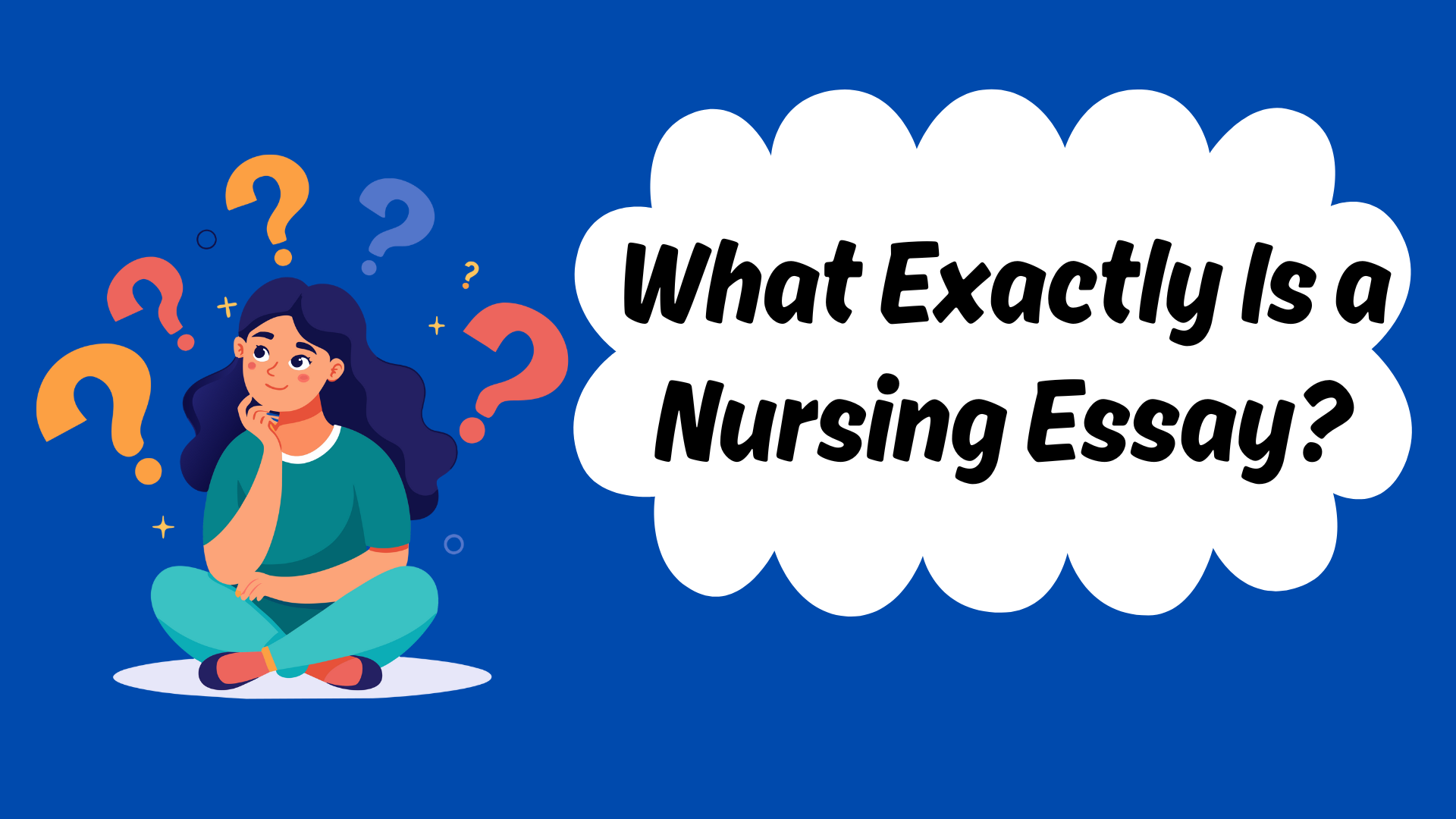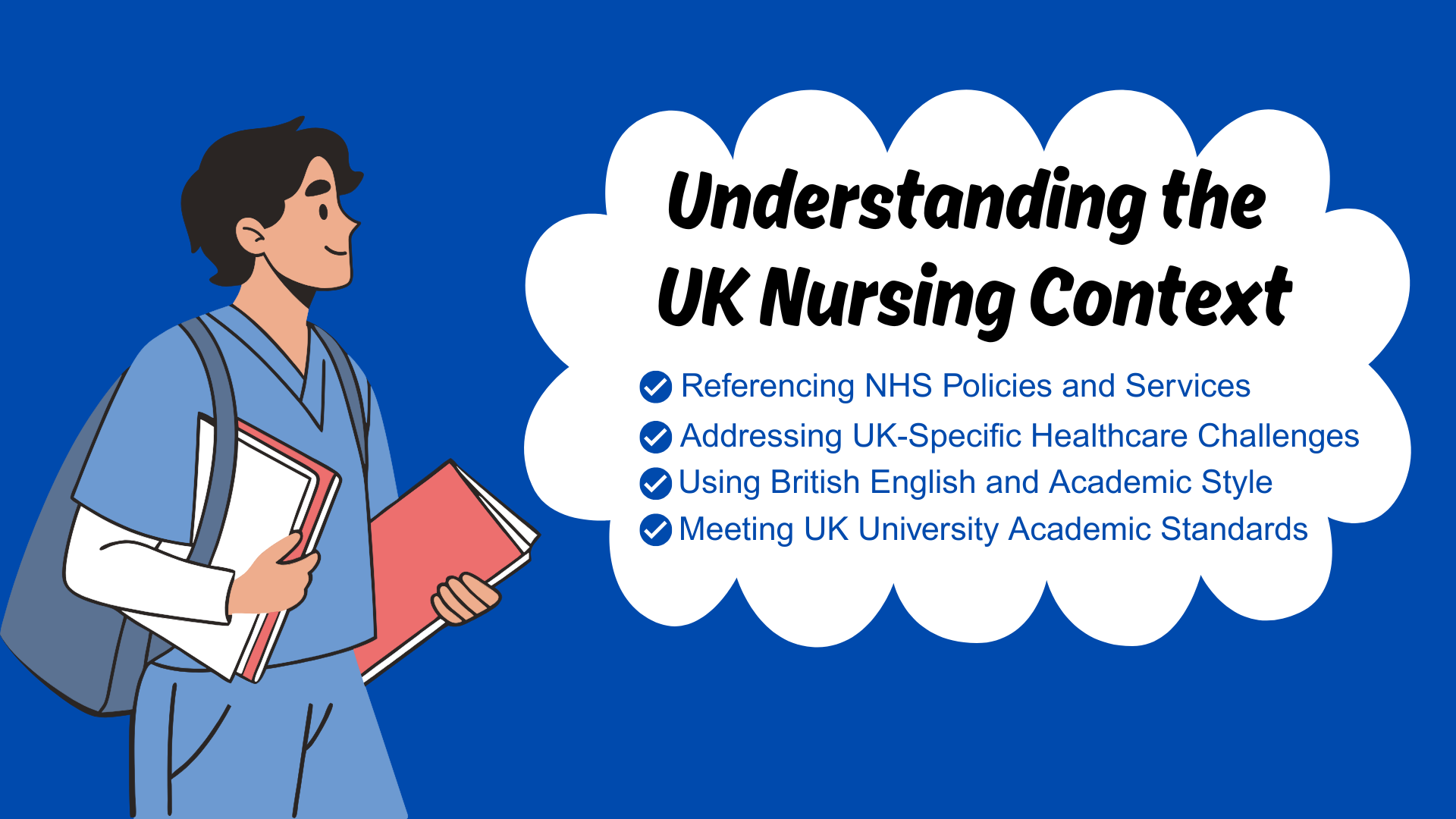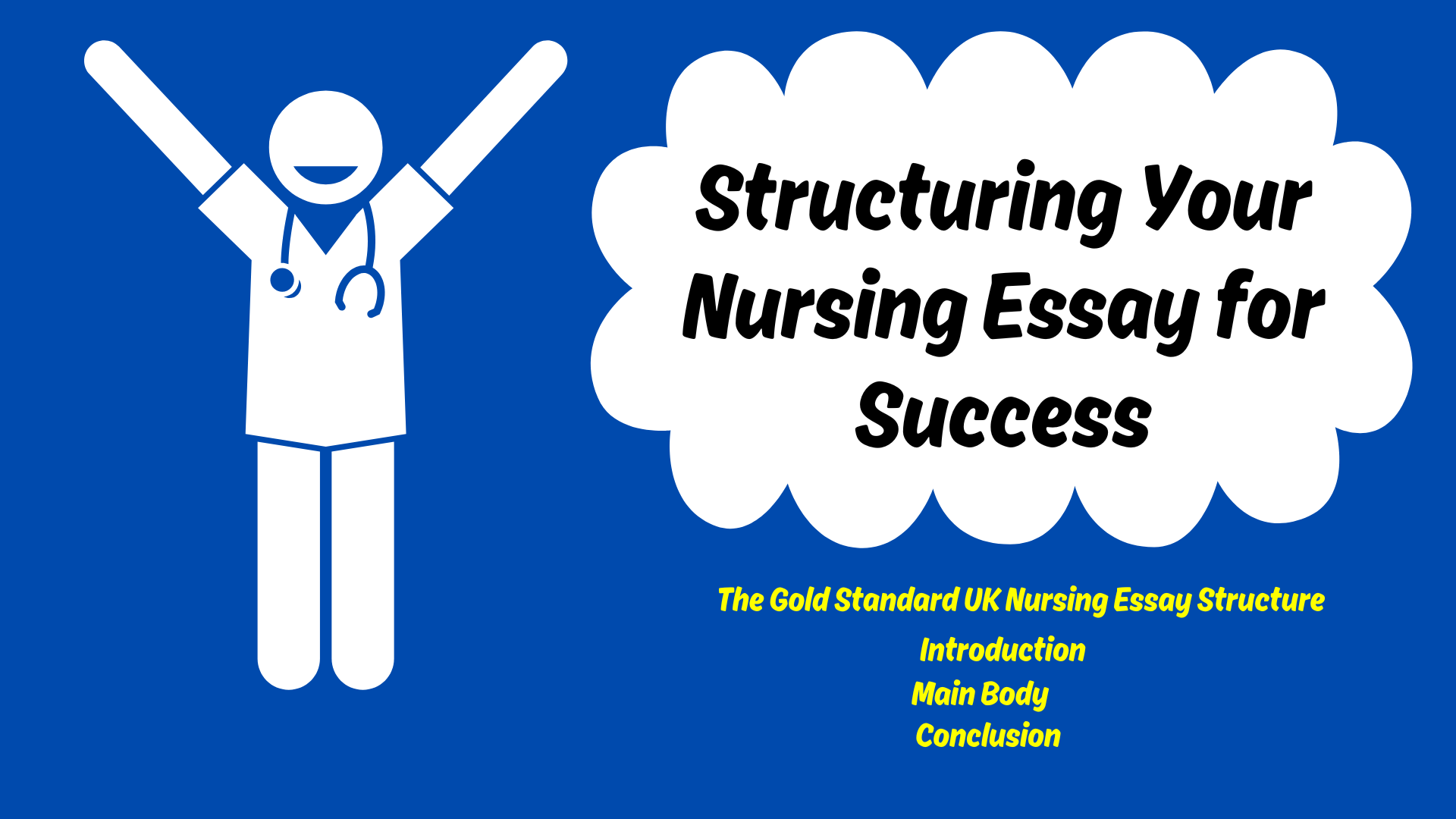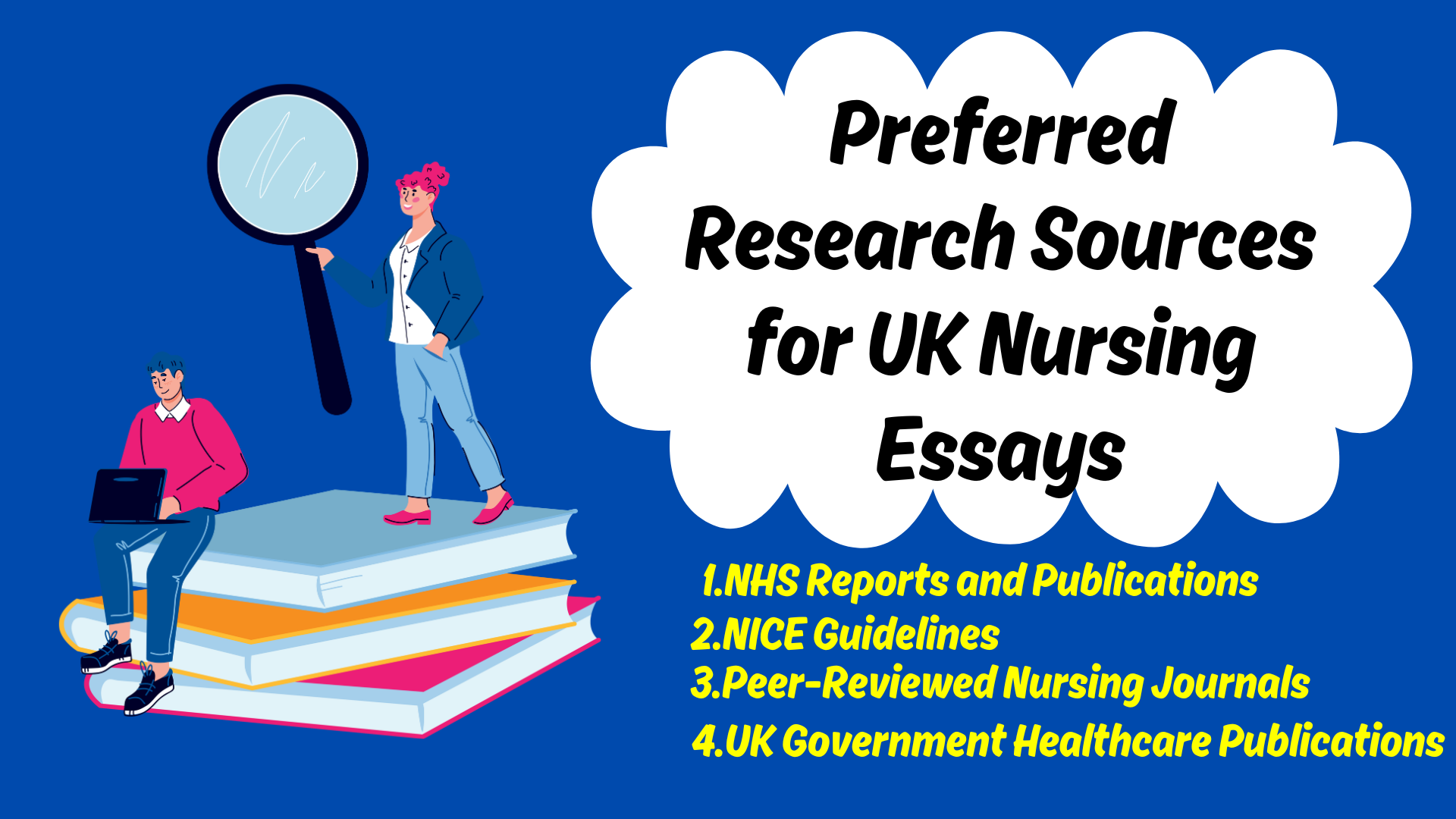A Comprehensive Step-by-Step Guide to Writing Clear, Impactful, and Well-Structured Nursing Essays

How to Write a Good Nursing Essay (2025–2026): Writing a nursing essay is not just about ticking boxes on an academic checklist — it’s about proving you have the knowledge, empathy, and critical thinking skills required to become a professional nurse.
Whether you’re applying to a UK nursing programme, working on an RN nurse assignment, or completing a reflective piece for clinical practice, your essay represents your dedication to patient care and the nursing profession.
At Projectsdeal.co.uk, we’ve helped thousands of UK nursing students turn their ideas into compelling, well-structured essays that get results. This guide will walk you through every stage of the process — from understanding what a nursing essay is, to polishing it for submission — so you can approach your next assignment with confidence.
1. What Exactly Is a Nursing Essay?

A nursing essay is an academic paper written by a nursing student or professional to explore a healthcare-related topic. It might be:
- A nursing application essay for university admission.
- A nursing admission essay required for a specific training programme.
- A reflective piece based on clinical experiences.
- A research-driven essay for a nursing module.
The difference between a nursing essay and other academic essays is its direct link to real-world patient care, ethics, and evidence-based practice.
Your writing must:
- Demonstrate clinical knowledge.
- Reflect on professional values.
- Show awareness of UK healthcare policies (NHS guidelines, NICE recommendations).
- Communicate clearly to both academic and non-academic readers.
2. Understanding the UK Nursing Context

Writing a nursing essay in the UK is not just about discussing healthcare in general — it’s about showing that you understand the specific policies, standards, and challenges of the British healthcare system. Your essay should demonstrate that you’re prepared to work as a nurse in the UK and are aware of the NHS values, professional expectations, and patient needs.
Here’s what this involves:
📋 Referencing NHS Policies and Services
The National Health Service (NHS) is the backbone of UK healthcare, so your essay should link your discussion to current NHS priorities and guidelines. For example:
- Referring to the NHS Long Term Plan (2019) when discussing future healthcare needs.
- Linking patient safety improvements to the NHS Patient Safety Strategy.
- Mentioning relevant NICE (National Institute for Health and Care Excellence) guidelines when discussing evidence-based practice.
Including these references shows that your ideas are rooted in real UK practice, not just theory.
🏥 Addressing UK-Specific Healthcare Challenges
A strong UK nursing essay acknowledges current and emerging challenges in British healthcare, such as:
- Staffing shortages and the impact on patient care.
- The needs of an ageing population and increasing demand for long-term care.
- Cultural diversity in patient populations, requiring culturally competent care.
- Mental health crisis and the government’s increasing focus on community-based mental health services.
By addressing these, you demonstrate that you’re aware of the real-world context in which UK nurses work.
Using British English and Academic Style
UK universities expect British English spelling and grammar:
- Paediatric (not pediatric)
- Organisation (not organization)
- Labour (not labor)
You should also follow UK academic conventions in structure, referencing, and formal tone. Most UK nursing courses require Harvard or APA referencing, and plagiarism is taken very seriously — so always paraphrase and cite your sources correctly.
🎓 Meeting UK University Academic Standards
Your essay must align with the academic expectations of UK higher education:
- Clear structure (introduction, body, conclusion).
- Balanced analysis and evidence-based discussion.
- Critical reflection that links theory to UK nursing practice.
- Accurate referencing according to your university’s style guide.
Failing to follow these standards can result in lower grades, even if your content is good.
💡 Tip: If you’re unsure about aligning your essay with UK-specific academic and professional expectations, Projectsdeal.co.uk’s nurse writing services can ensure that your work meets these standards perfectly — from correct NHS references to flawless British English.
3. Choosing a Topic That Stands Out

A good nursing essay starts with a topic that is both academically relevant and personally meaningful. The right topic not only keeps you motivated during the writing process but also makes your essay more engaging for the reader — especially if it reflects current issues in UK healthcare.
🔍 How to Choose the Right Topic
When selecting your topic, consider:
- Career Alignment – Pick something that connects with your future nursing goals (e.g., mental health nursing, paediatric care, public health).
- Personal Experience – Draw on real-life learning from placements, volunteering, or part-time healthcare roles. This gives your essay authenticity.
- Relevance to UK Healthcare – Focus on current NHS priorities, emerging trends, or policy debates.
- Availability of Sources – Ensure there’s enough credible UK-based research and policy material available.
🔥 Trending UK Nursing Essay Topics for 2025–2026
Here are current and in-demand topics that UK nursing students can explore:
Patient Safety & Quality Care
- “The Impact of NHS Patient Safety Strategy (2023) on Nursing Practice”
- “Reducing Medication Errors: The Role of Nurses in UK Hospitals”
Digital Health & Technology
- “How Artificial Intelligence is Transforming Patient Care in the NHS”
- “The Role of Telehealth in Expanding Access to Rural Communities in the UK”
- “Electronic Health Records and Data Security: Implications for Nursing”
Mental Health Nursing
- “Tackling the UK Mental Health Crisis: A Nurse’s Role in Community Care”
- “Supporting NHS Staff Mental Wellbeing: Strategies for Resilience”
- “Impact of Social Media on Adolescent Mental Health: Implications for School Nurses”
Public Health & Preventive Care
- “Nurses Leading the Fight Against Obesity in the UK”
- “Addressing Health Inequalities in Deprived UK Communities”
- “Vaccination Hesitancy and the Nurse’s Role in Public Health Education”
Workforce & Professional Practice
- “Addressing Nursing Shortages in the UK: Strategies for Recruitment and Retention”
- “Burnout Among NHS Nurses: Causes and Solutions”
- “The Importance of Cultural Competence in a Diverse UK Nursing Workforce”
Specialist Nursing Areas
- “End-of-Life Care: Meeting the Needs of an Ageing UK Population”
- “Innovations in Paediatric Nursing: Improving Outcomes for Children in the NHS”
- “The Role of Nurse Prescribers in Improving Primary Care Access”
💡 Pro Tips for Choosing Your Topic
- Avoid being too broad — narrow your focus to one clear question or problem.
- Choose something you’re genuinely curious about; passion shows in your writing.
- Make sure it’s timely — a current NHS policy, new medical technology, or a pressing healthcare challenge.
📌 If you’re stuck or overwhelmed by the options, our nursing paper writers can help you brainstorm, refine, and structure your topic so it is original, relevant, and impactful in the UK academic setting.
4. Structuring Your Nursing Essay for Success

A clear and well-organised structure is the backbone of any strong nursing essay. It helps your ideas flow logically, making your arguments easier to follow and increasing your chances of achieving a high mark. UK universities place a strong emphasis on essay structure, as it demonstrates your ability to communicate professionally and think critically within the healthcare context.
Why Is Structure Important?
- Enhances clarity: A well-planned essay guides the reader smoothly from one idea to the next.
- Demonstrates organisation: Clear sections show your ability to organise complex information — a key nursing skill.
- Supports analysis: Structured paragraphs help you balance description with critical evaluation.
- Meets academic standards: UK academic writing expects a formal, logical structure, which examiners use to assess your work.
The Gold Standard UK Nursing Essay Structure
1. Introduction
Your introduction sets the tone and direction for the essay. It should:
- Grab attention — Start with an engaging hook. This could be:
- A relevant NHS statistic (e.g., “According to the NHS Patient Safety Strategy 2023, communication failures contribute to 20% of preventable hospital incidents.”)
- A short patient scenario or clinical anecdote that relates to your topic.
- A compelling question or a recent policy change relevant to UK nursing.
- Provide context — Briefly explain why this topic matters within the UK healthcare system, linking it to NHS priorities or UK nursing standards (like the NMC Code).
- Outline your essay — Clearly state the main points you will cover, helping the reader know what to expect.
Example:
“In recent years, digital technology has transformed the delivery of healthcare services across the NHS. This essay will explore how these innovations impact nursing practice, focusing on patient safety, communication, and data security within UK hospitals.”
2. Main Body
This is the core of your essay — where you present your arguments, evidence, and analysis. Typically, you should have 3 to 5 well-developed paragraphs, each focusing on one key idea.
Each paragraph should include:
- A clear topic sentence that introduces the paragraph’s main point.
- Evidence from credible UK sources, such as NHS reports, NICE guidelines, or peer-reviewed nursing journals. Avoid overusing quotes; instead, paraphrase and summarise.
- Critical analysis — don’t just describe facts; explain what they mean for nursing practice. Connect theory to real-world application, reflecting on implications for UK nurses.
- UK relevance — explicitly link your arguments to UK-specific contexts, such as NHS policies, cultural diversity, or local healthcare challenges.
Example Paragraph:
“Effective communication is essential for patient safety in NHS settings. The NHS Patient Safety Strategy (2023) identifies communication breakdowns as a major factor in adverse events. Nurses, therefore, must employ clear, culturally sensitive communication techniques to ensure understanding and prevent errors, especially in diverse UK populations where language barriers may exist.”
3. Conclusion
Your conclusion should:
- Summarise your key points without simply repeating the introduction or body.
- Reflect on the implications of your findings for nursing practice in the UK — how might your topic influence future care, policy, or professional development?
- Suggest areas for further research or improvement where appropriate, showing awareness that nursing knowledge is always evolving.
Example:
“In conclusion, digital technology presents both opportunities and challenges for NHS nurses. While it can enhance patient safety and care coordination, ongoing training and robust data security measures are essential to realise its full benefits. Future research should focus on integrating technology with personalised nursing care in diverse UK populations.”
Additional Tips for Structuring Your Nursing Essay
- Use subheadings (where allowed) to clearly mark sections — this improves readability.
- Keep paragraphs focused and concise; avoid overly long blocks of text.
- Use transition sentences to link paragraphs smoothly and maintain a logical flow.
- Make sure your introduction and conclusion align — your conclusion should address the points you promised to cover.
Feeling Overwhelmed?
If organising your essay feels daunting, remember that you can always say, “write my nursing paper for me” to the experts at Projectsdeal.co.uk. Our UK-based professional nurse essay writers will craft a clear, coherent, and high-quality essay tailored to your assignment criteria, giving you peace of mind and freeing you to focus on your clinical practice and studies.

5. Step-by-Step Nursing Essay Writing Process (UK Guide 2025–2026)
| Step | Action | Details & UK-Specific Tips |
|---|---|---|
| 1. Understand the Brief | Read the assignment carefully | Identify word count, referencing style (Harvard/APA), deadline, and any UK healthcare focus. |
| 2. Choose a Strong Topic | Select a relevant and engaging nursing topic | Use recent NHS policies, UK healthcare debates, or personal placement experiences. |
| 3. Research Sources | Gather credible UK-based references | Prioritise NHS reports, NICE guidelines, UK nursing journals, and government publications. |
| 4. Create an Outline | Plan structure before writing | Include introduction, main body (3–5 key points), and conclusion. |
| 5. Write the Introduction | Hook, context, and outline | Start with a statistic, patient case, or UK policy change to grab attention. |
| 6. Draft the Main Body | Develop arguments with evidence | Each paragraph = one key idea + UK evidence + link to nursing practice. |
| 7. Add Critical Analysis | Go beyond description | Compare perspectives, evaluate evidence, and relate to NMC Code or NHS priorities. |
| 8. Write the Conclusion | Summarise and reflect | Highlight main findings and their implications for UK nursing. |
| 9. Reference Correctly | Use Harvard or APA | Follow your university’s style guide and include in-text citations + reference list. |
| 10. Edit & Proofread | Improve clarity and flow | Use UK spelling, check grammar, and ensure logical flow. |
| 11. Final Review | Check against marking criteria | Ensure it meets requirements for knowledge, analysis, structure, referencing, and style. |
| 12. Submit | Upload to your portal or hand in | Keep a copy for your records and feedback review. |
6. Research: The Foundation of a Professional Nurse Essay
Research is the backbone of any high-quality nursing essay. It demonstrates your ability to locate, evaluate, and integrate credible information — a critical skill for any professional nurse committed to evidence-based practice. In the UK, academic institutions and healthcare regulators like the Nursing and Midwifery Council (NMC) expect your work to be grounded in up-to-date, reliable sources that reflect current UK healthcare standards and policies.
Why Is Research So Important?
- Supports your arguments: Solid evidence lends credibility to your points and helps persuade the reader.
- Links theory to practice: UK nursing essays require you to connect research findings to clinical settings and NHS guidelines.
- Ensures accuracy: Healthcare knowledge changes rapidly. Using current sources ensures your essay reflects the latest best practices.
- Avoids plagiarism: Proper research and citation help you create original work that meets UK academic integrity standards.
Preferred Research Sources for UK Nursing Essays

- NHS Reports and Publications
The National Health Service (NHS) is the cornerstone of UK healthcare. Using NHS reports provides authoritative data on patient care, safety strategies, healthcare policies, and service delivery. Examples include:
- NHS Long Term Plan (2023)
- NHS Patient Safety Strategy (2023)
- Trust-specific reports (e.g., NHS England, local NHS Foundation Trust publications)
These documents offer insights into practical challenges nurses face and the frameworks guiding UK nursing practice.
- NICE Guidelines
The National Institute for Health and Care Excellence (NICE) produces evidence-based guidelines that shape clinical decision-making across the UK. NICE guidelines cover a wide range of topics from infection control to mental health care. Incorporating NICE recommendations shows your essay aligns with recognised standards of care.
- Peer-Reviewed Nursing Journals
Academic journals publish the latest research studies, reviews, and case reports. Use UK and international journals respected in nursing, such as:
- Journal of Advanced Nursing
- Nursing Standard (UK-based)
- International Journal of Nursing Studies
- British Journal of Nursing
These sources provide detailed analyses and critical perspectives on nursing practice and healthcare developments.
- UK Government Healthcare Publications
Reports and policy documents from the UK Department of Health and Social Care, Public Health England, and other government bodies offer data on public health trends, funding, and legislative changes. Referencing these shows your essay is grounded in the policy environment that shapes UK nursing.
Sources to Avoid
- Wikipedia and general internet sites: These are not peer-reviewed and may contain inaccurate or biased information.
- Unverified blogs or opinion pieces: Unless written by recognised experts and published in reputable platforms, these lack academic rigour.
- Outdated materials: Always check publication dates; healthcare standards evolve quickly, so use the most recent data available.
Tips for Effective Research
- Use your university’s library databases, such as CINAHL, PubMed, and EBSCOhost, which offer access to reliable healthcare journals.
- Look for systematic reviews and meta-analyses, which summarise multiple studies for stronger evidence.
- Take organised notes, recording source details for easy referencing.
- Critically evaluate each source’s relevance, credibility, and bias.
💡 Need Help?
If finding and selecting appropriate UK-based sources feels overwhelming, our research paper writers online at Projectsdeal.co.uk specialise in gathering the most current, relevant, and credible materials for your nursing essay. We save you time and ensure your work meets UK academic and professional standards.
7. Writing Style: Balancing Professionalism and Clarity

Writing a nursing essay requires more than just presenting facts — it’s about communicating complex healthcare information clearly and professionally while demonstrating empathy and critical thinking. Your essay should reflect the qualities of a professional nurse: precision, clarity, and compassion. Here’s how to achieve the right writing style for UK nursing essays:
Use Plain English Wherever Possible
Nursing is a practical profession, and your essay should be easy to understand for a wide audience, including academics, healthcare professionals, and sometimes patients or policymakers. Avoid unnecessary jargon or overly complex sentences. Instead:
- Use simple, direct language.
- Break down complicated concepts into understandable terms.
- Prioritise clarity over impressiveness.
This approach mirrors how nurses communicate in clinical settings—clear, concise, and focused on effective information sharing.
Define Medical Terms for Non-Specialist Readers
While your audience will likely have some healthcare knowledge, your essay might also be read by academics from different disciplines. Always:
- Explain or briefly define specialised terms and abbreviations the first time you use them.
- Avoid assuming all readers will understand medical or technical language.
For example, instead of just saying “hypertension,” you could write “hypertension, also known as high blood pressure, is a common condition…” This shows your ability to educate and communicate clearly.
Stay Objective Unless Writing Reflectively
Professional nursing essays require an evidence-based, objective tone:
- Present facts, data, and research findings without letting personal opinions dominate.
- Support claims with credible sources and logical reasoning.
- Maintain impartiality, especially when discussing controversial or sensitive issues.
However, when writing reflective essays (such as clinical reflections), you may share personal insights and emotions, but these should still be framed within professional standards and linked to learning outcomes and nursing codes of conduct.
Maintain a Formal Tone But Show Empathy
Your essay should sound professional and respectful:
- Use formal language appropriate for academic writing.
- Avoid slang, contractions (e.g., “don’t” instead of “do not”), or casual expressions.
- Use active voice where possible to make writing more engaging and direct.
At the same time, nursing is a caring profession, so your writing should convey empathy—especially when discussing patient experiences, ethical dilemmas, or health inequalities. Demonstrating sensitivity and compassion in your tone reflects your understanding of nursing’s human-centred values.
Common Writing Style Pitfalls to Avoid
- Being too vague or general — provide specific examples and evidence.
- Overloading sentences with information — keep sentences focused and manageable.
- Using clichés or generic phrases like “nursing is important” without explanation.
- Switching between first-person and third-person inconsistently (choose the style required by your assignment).
💡 Need Help?
If you’re uncertain about the tone, grammar, or overall flow of your essay, our professional essay editor service at Projectsdeal.co.uk can review your draft. We ensure your writing is clear, professional, and polished, meeting UK academic standards and reflecting the compassionate, skilled nurse you aim to be.
8. Special Considerations for Application & Admission Essays

Application and admission essays are a critical part of your journey into nursing education and advanced training in the UK. These essays serve as your personal introduction to admissions tutors, showcasing not only your qualifications but also your passion, suitability, and readiness for a nursing career or further specialisation.
Nursing Application Essays: Your First Impression
When applying to undergraduate nursing programmes in the UK, your application essay is often your first opportunity to demonstrate why you belong in the profession. Admissions tutors are looking for candidates who understand the demands and rewards of nursing and who embody the core values of the NHS and the NMC (Nursing and Midwifery Council). To make your essay stand out, focus on:
Your Motivation for Nursing
- Explain clearly why you have chosen nursing as a career.
- Share any personal stories or experiences that inspired you.
- Reflect on your understanding of the nurse’s role in UK healthcare.
Example: “Volunteering at a local hospice opened my eyes to the compassionate care nurses provide and solidified my commitment to becoming a nurse who supports patients through challenging times.”
Personal Qualities Like Empathy and Resilience
- Nursing requires emotional strength and the ability to connect with patients.
- Highlight qualities such as empathy, resilience, patience, communication skills, and teamwork.
- Use examples from your life, such as caring for a family member or managing challenging situations during work or volunteering.
Admissions tutors want to see that you’re not only academically capable but also emotionally and mentally prepared.
Relevant UK Healthcare Experience
- Detail any work experience, placements, or volunteering you’ve done in UK healthcare settings.
- Discuss what you learned about the NHS, patient care standards, and the challenges nurses face.
- Showing familiarity with NHS values and practices can set your application apart.
Nursing Admission Essays for Postgraduate or Specialist Training
If you’re applying for postgraduate programmes or specialist nursing courses (e.g., nurse practitioner, mental health nursing), your admission essay needs a different focus, emphasizing your prior experience and future goals.
Academic Achievements
- Outline your educational background, highlighting relevant modules or qualifications.
- Mention any research projects, dissertations, or presentations related to nursing.
Professional RN Nurse Experience
- Reflect on your clinical experience as a registered nurse in the UK.
- Discuss specific roles, responsibilities, and achievements in your nursing career.
- Emphasise your practical skills, patient outcomes you’ve contributed to, and professional development activities.
How the Programme Aligns with Your Career Goals
- Clearly explain why you want to pursue this specific course or specialisation.
- Connect the programme’s learning objectives to your long-term professional aspirations.
- Show awareness of how this training fits within the NHS’s current priorities and healthcare landscape.
Example: “Completing the MSc in Advanced Clinical Practice will equip me with the skills to lead complex patient care teams and contribute to improving NHS mental health services.”
Additional Tips for Writing Successful Application & Admission Essays
- Be Honest and Authentic: Admissions tutors value sincerity over exaggerated claims.
- Demonstrate Understanding of Nursing: Show that you’ve researched the profession and understand its challenges and rewards.
- Proofread Carefully: Spelling or grammar mistakes can undermine your professionalism.
- Follow the UK Format: Use British English spelling, and adhere to any word limits or guidelines provided by the university.
💡 Struggling with Your Nursing Application Essay?
At Projectsdeal.co.uk, we specialise in help with nursing essay writing tailored for UK students. Whether you need assistance articulating your motivation, structuring your personal statement, or polishing your final draft, our experienced writers and former nurses understand what UK nursing admissions tutors are looking for — giving you the best chance to succeed.
Common Mistakes to Avoid
❌ Ignoring the brief – not fully understanding or addressing the assignment criteria.
❌ Weak or incorrect referencing – inconsistent style, missing citations, or citing unreliable sources.
❌ Overusing quotes instead of paraphrasing – relying too much on direct quotes rather than summarising in your own words.
❌ Being purely descriptive – failing to include critical analysis and evaluation of evidence.
11. Marking Criteria Breakdown (UK Universities)
Understanding how your nursing essay will be assessed is key to targeting your efforts effectively. UK universities commonly use a clear marking rubric, which breaks down the key areas lecturers evaluate. Here’s a detailed look at the typical criteria and how much weight each carries:
| Criteria | Weight | What It Means |
|---|---|---|
| Knowledge & Understanding | 30% | Demonstrating a solid grasp of nursing theories, concepts, and UK healthcare policies relevant to your topic. Accurately explaining key terms and showing awareness of the clinical context. |
| Critical Analysis | 25% | Going beyond description to evaluate evidence, compare viewpoints, and discuss implications. Linking theory to nursing practice and reflecting on UK nursing standards such as the NMC Code. |
| Structure & Organisation | 20% | Presenting ideas logically with a clear introduction, coherent paragraphs, and a strong conclusion. Effective use of headings and transitions to ensure easy readability. |
| Evidence & Referencing | 15% | Using credible, UK-based sources like NHS reports and peer-reviewed journals. Applying the correct referencing style consistently (Harvard or APA). Properly integrating citations into the text. |
| Presentation & Style | 10% | Writing with clarity and professionalism. Using correct British English spelling and grammar. Maintaining a formal, empathetic tone appropriate for nursing essays. |
12. Editing & Final Checks
Before submitting your nursing essay, thorough editing and final checks are essential to ensure your work is polished, professional, and ready for assessment. Here’s what to focus on:
- Proofread for grammar & spelling: Carefully read through your essay to catch and correct any grammatical mistakes, awkward phrasing, or spelling errors. Use UK English conventions (e.g., ‘organisation’ instead of ‘organization’) to align with your university’s expectations.
- Ensure UK spelling is used consistently: Consistency in spelling is critical. Switching between American and British English can confuse your reader and appear careless. Tools like Microsoft Word or Grammarly can help set your document to UK English.
- Check references are correct: Double-check every citation and reference for accuracy and completeness. Make sure your in-text citations match your reference list and that you follow the Harvard or APA referencing style as required by your university.
- Read aloud for flow and clarity: Reading your essay out loud helps identify sentences that are too long, unclear, or awkward. This technique improves the overall flow and ensures your ideas are communicated clearly and smoothly.
- Use editing tools or seek a second pair of eyes: Consider using professional essay editor services or asking a peer or mentor to review your work. Fresh eyes can catch errors you might miss and offer valuable feedback on clarity and coherence.
Taking these final steps will help you submit a confident, well-crafted nursing essay that meets UK academic standards and impresses your tutors.
Frequently Asked Questions (FAQs) – Nursing Essay Writing UK (2025–2026)
1. How to write a good nursing essay?
Writing a good nursing essay involves clear understanding of the topic, thorough UK-based research, structured organisation, and professional yet empathetic writing. Start with a strong introduction, develop well-supported arguments in the main body, and conclude with insightful reflections linked to UK nursing practice and policies.
Need expert help? Visit Projectsdeal.co.uk Nursing Essay Writing Service for professional support.
2. What is the best introduction for a nursing essay?
The best introduction grabs the reader’s attention with a relevant fact, patient scenario, or NHS statistic. It should clearly outline the essay’s focus and explain why the topic is important within the UK healthcare context, setting the tone for a well-researched, professional paper.
3. How long should my nursing essay be?
Essay length varies by assignment but generally ranges between 1,500 and 3,000 words for UK nursing courses. Always follow your university’s specific word count guidelines and focus on quality content rather than quantity.
4. What is a good opening line for a nursing personal statement?
A compelling opening line might highlight your passion for patient care, such as: “From a young age, I have been driven by a desire to support others through compassionate nursing care.” Starting with a personal motivation helps create a strong, authentic connection.
5. How do you start a nursing essay?
Start your essay with a hook—such as a relevant NHS statistic or patient story—followed by a clear thesis statement explaining the essay’s focus and its relevance to UK nursing practice.
6. How do you write a personal essay for nursing?
Write honestly about your motivations, experiences, and qualities that make you a strong candidate. Use clear examples from UK healthcare settings, reflect on learning moments, and connect your goals to the values of the nursing profession.
7. What is the writing format for nursing essays?
Most UK nursing essays follow a formal academic structure: Introduction, Main Body (with 3-5 paragraphs), and Conclusion. Use Harvard or APA referencing styles, and always check your university’s specific formatting guidelines.
8. How to start your essay introduction?
Begin with a hook (an engaging fact, question, or anecdote), then provide context on the topic’s importance, and finally, outline what your essay will cover.
9. What is a good introduction about nursing?
A good introduction highlights nursing’s vital role in patient care, references NHS priorities, and sets the stage for discussing clinical knowledge, ethics, or healthcare challenges in the UK.
10. How do I start off a nursing essay?
Open with an attention-grabbing statement related to UK nursing, explain the significance of your topic, and briefly outline your essay’s main points.
If you want a polished essay introduction, professional help is available at Projectsdeal.co.uk.
11. What is an example of a personal statement for the NHS?
A strong NHS personal statement focuses on your commitment to compassionate care, relevant experience within UK healthcare, teamwork, and dedication to continuous learning aligned with NHS values.
12. How to write an essay on nursing care?
Discuss the theory and practical aspects of nursing care, support your points with UK-based research (NHS policies, NICE guidelines), and include real-world examples to show your understanding.
13. What is the best line to start a personal statement?
Use an impactful sentence that reflects your motivation and character, such as: “Caring for others has always been at the heart of who I am, inspiring me to pursue a nursing career.”
14. What writing format is used in nursing?
Nursing essays typically use a clear, formal academic style with structured paragraphs, evidence-based arguments, and standard UK referencing formats like Harvard or APA.
15. How to structure a nursing essay?
Follow this structure: Introduction (hook, context, thesis), Main Body (paragraphs with evidence and analysis), and Conclusion (summary, reflection, implications).
16. How long should my NHS essay be?
Follow your assignment’s word limit, but typically essays range from 1,500 to 3,000 words depending on the level of study and module requirements.
17. Why do you want to be a nurse? (500-word essay)
Express your passion for helping others, describe your experiences that shaped this desire, and explain how nursing aligns with your values and career goals within the NHS framework.
18. Is it hard to get into the NHS?
Joining the NHS as a nurse requires dedication, relevant qualifications, and practical experience. With commitment and preparation, many find rewarding opportunities to grow and contribute to UK healthcare.
Final Advice for UK Nursing Students
A great nursing essay in 2025–2026 should be:
- Well-researched with UK healthcare sources.
- Clearly structured and logically organised.
- Professionally written, yet empathetic in tone.
- Aligned with UK nursing values and NHS priorities.
Whether you’re a first-year student or an RN nurse aiming for further qualifications, mastering nursing essay writing is key to both academic and clinical success.
📌 If you need expert help, remember — Projectsdeal.co.uk is the UK’s trusted choice for professional nurse essay writing and editing.
Recognised as one of the best academic services in the UK (read more here),
Projectsdeal.co.uk offers customised support tailored to your nursing essay needs.
✅ Ready to impress your lecturers? Contact their UK-based experts today via
WhatsApp at +44-7447-882377 or
visit Projectsdeal Nursing Essay Writing Service for personalized assistance.